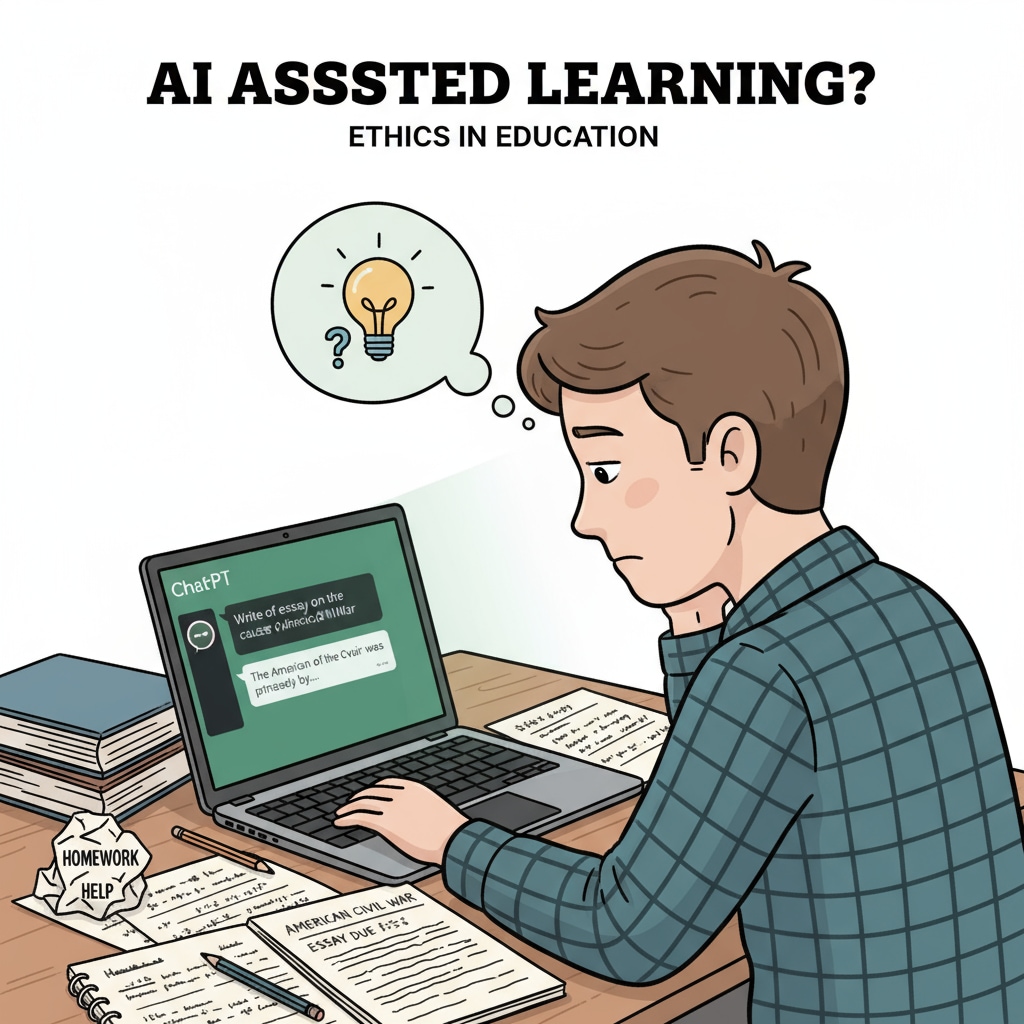Cheating prevention, ChatGPT, homework, and children’s free time are all intertwined in the current educational landscape. With the rapid spread of AI tools like ChatGPT, students have found new ways to cheat on their homework, which has raised significant concerns among educators. This has led to a broader discussion about the very nature and value of homework, as well as the importance of preserving children’s free time for holistic development.

The Rise of AI-Assisted Cheating
The emergence of ChatGPT and similar AI tools has revolutionized the way students approach their homework. These powerful language models can generate well-written essays, solve complex problems, and provide detailed answers to various questions. As a result, many students are tempted to use them to complete their assignments quickly and easily, bypassing the learning process. For example, a student might ask ChatGPT to write a book report or solve a math problem set, submitting the generated content as their own work. According to Educause’s report on AI in education, this form of cheating has become increasingly common in recent months.
Strategies for Cheating Prevention
Educators are now on a mission to develop effective strategies to combat AI-assisted cheating. One approach is to use detection tools that can identify text generated by AI. These tools analyze the writing style, vocabulary, and structure of the submitted work to determine if it matches the patterns typical of AI-generated content. In addition, teachers can modify their assignment design. Instead of traditional essay questions, they can assign more hands-on projects, group work, or real-time in-class assessments. This way, students are less likely to be able to rely on AI to complete their tasks. For instance, a science teacher could assign a lab experiment where students have to collect data, analyze it, and draw conclusions on their own. As per TeachThought’s guide on preventing AI cheating, these methods can be quite effective in deterring cheating.

Another important aspect is to educate students about the ethics of using AI in their studies. By teaching them about academic integrity and the importance of genuine learning, students may be less likely to engage in cheating. Teachers can incorporate lessons on digital ethics into their curriculum, discussing the proper and improper uses of AI in educational settings.
Rethinking the Value of Homework
The prevalence of AI-assisted cheating also forces us to question the very value of homework. Traditionally, homework has been seen as a way to reinforce learning, develop study skills, and prepare students for exams. However, in the era of AI, these goals may be less effectively achieved through traditional homework assignments. Instead, we need to consider whether there are more meaningful ways to support students’ learning. For example, rather than assigning hours of rote memorization tasks, we could focus on projects that encourage critical thinking, creativity, and problem-solving. This would not only make learning more engaging for students but also be more resistant to AI-assisted cheating.
Moreover, excessive homework can take up a significant amount of children’s free time. Free time is crucial for children’s physical and mental health, as well as for the development of social skills, hobbies, and interests. By reducing the burden of homework, we can provide children with more opportunities to explore their passions, engage in outdoor activities, and spend quality time with family and friends.
Readability guidance: As seen above, we have used short paragraphs and presented ideas in a clear manner. For each main point, we have provided explanations and examples. The passive语态 has been kept to a minimum, and transition words like ‘for example’, ‘in addition’, and ‘as a result’ have been used to enhance the flow of the text.


